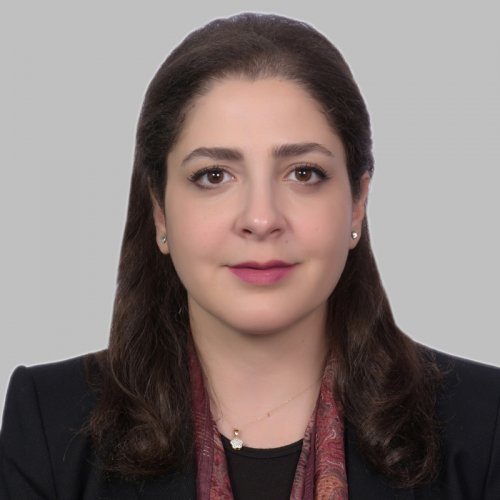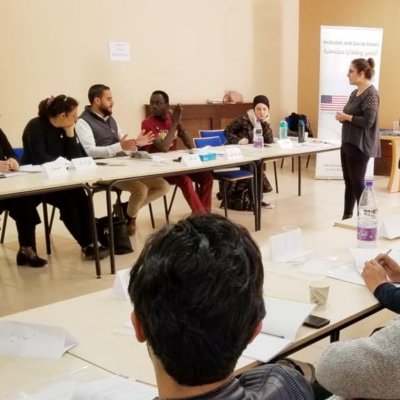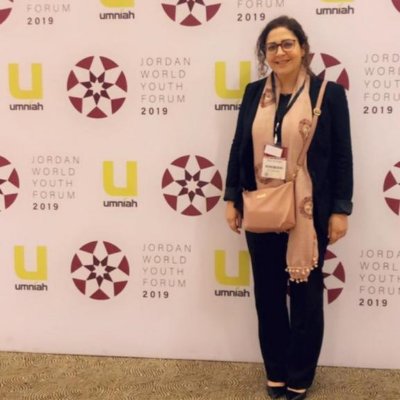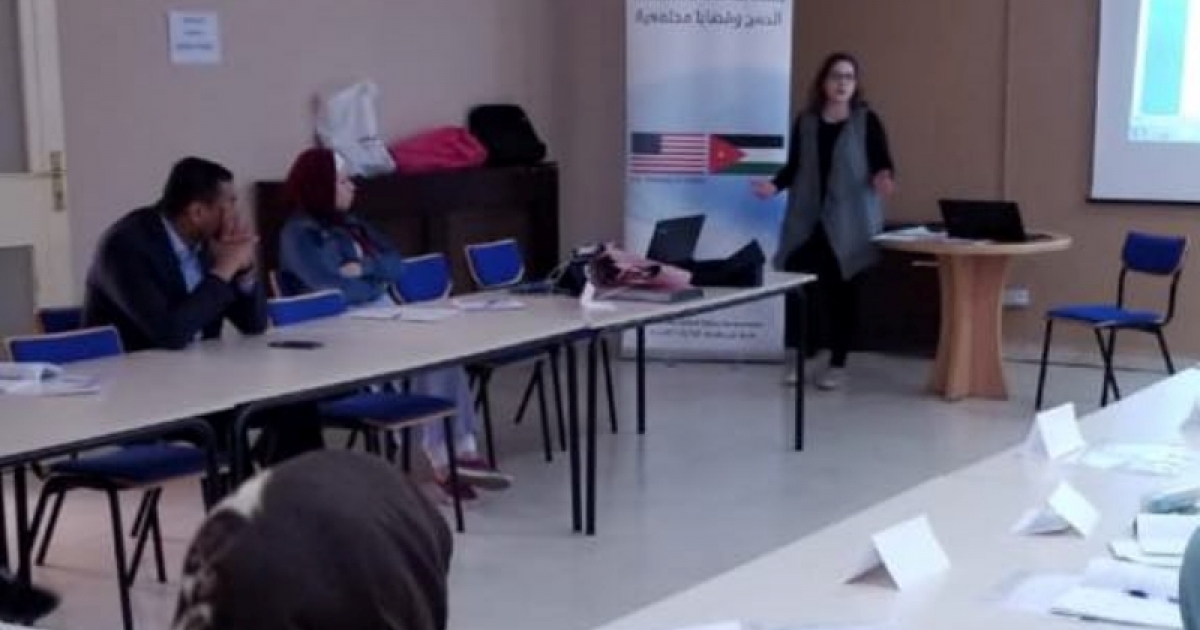“Put Yourself as a Priority”
Ilham Darwazeh is passionate about self-development and human rights and she is a believer in the power of humanity. Ilham is Jordanian from Palestinian origin. She holds a Bachelor’s Degree in English Language and Translation from the University of Petra and recently graduated from a post-graduate degree in Human Rights from the University of Jordan. She has worked as a professional translator for around 8 years at the United Nations, and also in Events Management and Ticketing for 3 years in the United Nations. Ilham is always willing to be introduced to new perspectives and cultures, and she enjoys cultural, social, art and musical events.
Q: Tell us a few things about your country, and also your life's story!
A: Though Jordan is a small country, it has a big heart. People here are from different nationalities and religions that harmonize and respect each other. It is a welcoming country, it opened borders to refugees.
Due to its location, it is affected directly with conflicts in the Middle East area, and it is contributing towards finding solutions toward neighbouring countries. Jordan is a home for many Arabs and people from different countries. The largest population of Jordan is young people under 30s. Youth is a high priority in Jordan, the government believes in young people capabilities and works on supporting them.
I was born in Kuwait and then moved to Jordan in the gulf war. I spent my life in Jordan, and on summer school vacations, my family used to spend it in Palestine, to visit my grandparents. My interest at an early age was reading and language. In college, I studied translation and worked in the United Nations, and from there, my interest in human rights and humanitarian issues were growing. After years, I decided to take this interest into a further professional level, and so I did a master's degree in this field. One of the best things about Jordan is social life and family's bonds, so my interests were shaped around people; meeting new people, building relationships and making an impact in people's life.
Q: What is your view of the world as it is today? And how do you define the concept of a better world?
A: The world is going through rapid changes in many aspects such as economy and climate, which affect all parts of the world. These global challenges require collaborated efforts. In addition to the increase in the population movement, there is a pressing need to have tolerance and acceptance for each other.
Creating a better place and environment to live in is a continuous process, and I believe it is the goal behind all motivations. When individuals realize that they can make a difference and feel the responsibility toward living on this earth, this contribution would extend into larger scales, and then we have this better world when we, the people, start thinking from "the now"; what we can do at this moment with these available resources.
Q: As a young individual what are a few of the hurdles that you had to overcome up until today?
A: I think it is revolved around being independent by finding a job and building a career. I spent years focusing on my career, working toward creating opportunities, and learning to cope with the challenges. I attended self-development courses that helped in finding answers to my questions about different things in life. The hurdles were how; to live the life I want, to embrace changes, and to see the whole picture of situations.
Q: Why is the role of a mentor important for you?
A: A mentor helps me in setting my priorities. Guides me on how to make decisions, and helps me identify my fears and how to deal with them. Gives me insight into things I am not aware of, especially when starting with a new thing that I have no experience in and meanwhile, learning the way by myself, not by being told what to do.
Q: Do you have a lesson that life has taught you and you would like to share?
A: Appreciate yourself, put yourself as a priority, and value yourself.
Q: What are some of the challenges that women in your country face and what efforts are made towards gender equality?
A: Jordan has allowed the rate of women's economic participation, and the political participation for women is limited. Therefore, only a small number of women reach leadership positions. Percentage of women who own their own business in Jordan is less than 2%. Laws relevant to women issues such as marriage and divorce are affected by social norms and patriarchal society. One of the fruitful efforts is the abolishment of Article 308 of the Jordanian Penal Code of sexual assaults in 2017. Big efforts are directed toward education and helping women in small businesses to better support themselves and their families, and contribute to local economic growth.
Q: Athena40 is the first ever global selection of the top 40 women forward thinkers, commentators, activists, authors, academics, entrepreneurs, executives, innovators. Can you think of a truly innovative and forward-thinking woman from your country that you wish to nominate for the Athena40 global list?
A: I admire the work of two women:
Dina Baslan (Sawiyan) Non-profit Corporation, established in 2018– an activist who established this first kind of corporation that addresses African-origin refugees and vulnerable Jordanians.
Alia Al-Natsheh (EBC) Executive Business Co., established in 2016– an entrepreneur who studied the gaps in the Jordanian market and she was the first who designed an accredited digital marketing course.
Q: Share with us a phrase, a poem or a story that you love or you find interesting!
A: "When you become comfortable with uncertainty, infinite possibilities open up in your life. It means fear is no longer a dominant factor in what you do and no longer prevents you from taking action to initiate change." - New Earth Book.
Q: Tell us one thing that you have learned from your mentor.
A: Manage my energy, and focus on things that do serve my goal.





